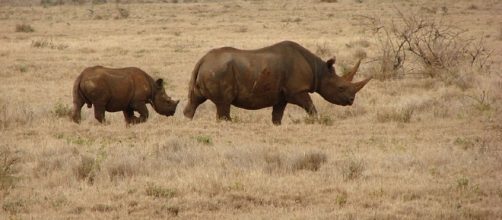Kenya - the Laikipia region is the last stronghold of Wildlife outside of national parks and it is under grave threat from armed invaders. Last year the British High Commissioner appealed for the land invasions to stop, citing investment concerns and a fall in tourism to the area. The violent land invasions which have resulted in people being shot, wounded and even killed is not directed at any ethnic landowner population but has targeted small native Kenya farmers, through to vast conservancies.
Kenya invasions have political basis
According to reports by the (Kenya) Star News, land invasions have been going on since a 2013 pre-election campaign spiralled into a deliberate land grab.
They cited one resident as saying, “What we are seeing is the implementation of a plan made before the 2013 elections, when the Samburu and Pokot resolved their 2006-09 feud by agreeing to attack everybody else.” With the 2017 election looming, violence has intensified with reports that the government's almost "lackadaisical" attempts to do very little about the invasions could be due to some government officials having a stake in the illegal operations.
In a report on 28 January 2017, The Star reported that the situation was anarchy as gunmen surround farms in the Laikipia region. Owners have been fired at, fences stolen, livestock rustled and wild animals killed. Some farmers, one of whom was shot and crippled have had to abandon their farms and hundreds of thousands of cattle are being driven onto land that cannot sustain them.
Authorities have talked of drought being the reason behind the land grab, but the CEO of one conservancy, who does not want to name the farm said that the elections and the current crisis are "inextricably linked."
Land grab has devastating impact
The Star wrote that It is widely believed that most of the cattle driven into Laikipia belong to politicians who hide their wealth in livestock. The ‘bigmen’ hide their ill-gotten wealth in cattle, which is invisible to the KRA and anti-corruption authorities. Apart from the danger to tourists in the area, which saw a group of Dutch visitors attacked by Pokot in Laikipia Nature Conservancy on New Year's Eve, the impact will be devastating for wildlife and local residents.
A large Conservancy has had to cancel a $6 million (Sh600 million) investment in the area due to stock theft and anarchy in the region. This will impact on 250 jobs and potential tax revenue of $1 million over the next two years. and one sanctuary for the endangered Black Rhino is under threat.
A comment by one of the Star readers said "The land cannot handle a hundred thousand cattle. it never could. Look at Samburu today. it is now a wasteland that once used to contain forests and grasslands and has been overgrazed and is an eroding patchwork of badlands and exposed rock.....My heart goes out to the victims and their families who have been murdered. The politicians lead by impunity based on their personal greed and care not about Kenya nor the welfare of the natural and living heritage of this beautiful country."
Tourists should reconsider their options
According to the British High Commissioner, who said in December that he stands ready to assist with investment in the area once the invasions stop, "Tourists contemplating a holiday in this beautiful place may start to reconsider their options.
But...it is the ordinary wananchi who suffer most when law and order breaks down."
A photojournalist posted on Facebook this week, that "at least 135,000 cows have invaded north Laikipia's farms and ranches and conservancies. People have been murdered – no one has been arrested. The invaders have burnt out homes, offices, staff quarters. They have a looted and destroyed property. People are being shot at every day with AK 47s."

